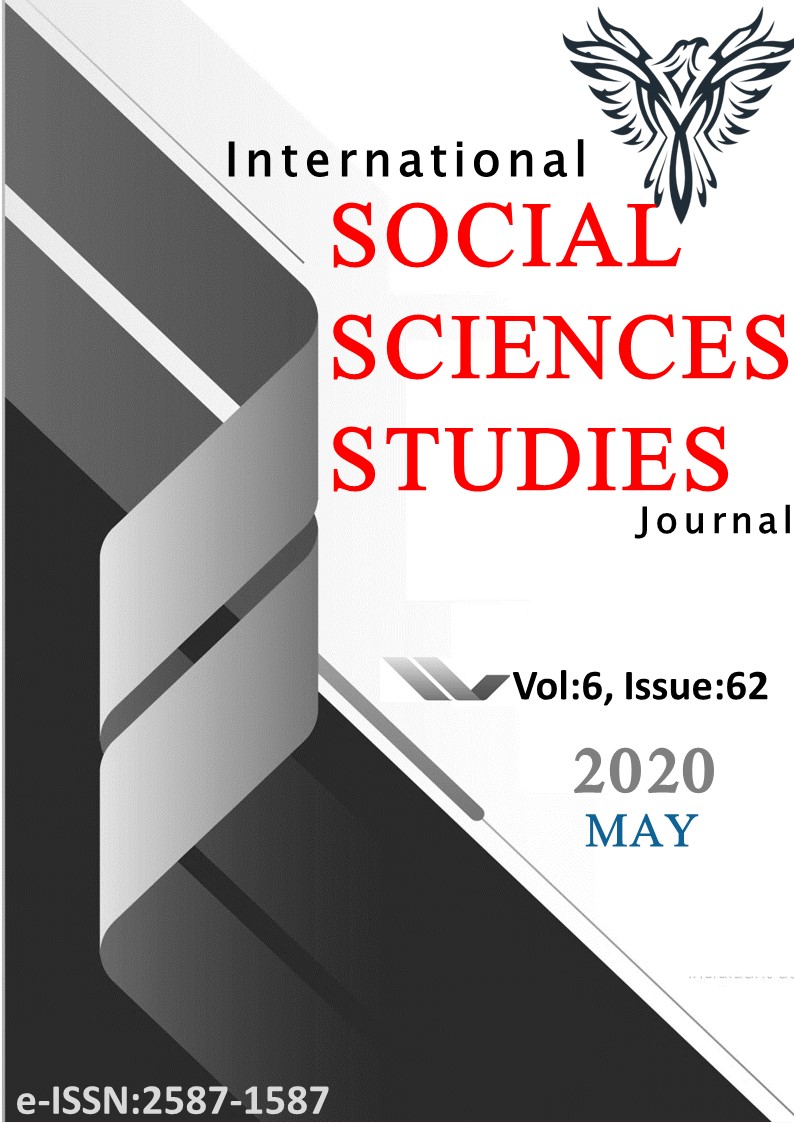Author :
Abstract
Tıbbi ortamlarda güvenin önemine rağmen, güvenin ne anlama geldiği, güvenin gerçekte ne fark yarattığı, güvenin neleri etkilediği ve güvenin hasta tutum ve davranışlarıyla nasıl ilişkili olduğu hakkında çok az şey bilinmektedir. Hekime ve sağlık sistemine olan güven/güvensizliğin ortaya konulması sağlık politikaları oluşturulurken bir yol gösterici olacaktır. Biz bu çalışmamızda Thomas ve arkadaşları tarafından geliştirilen Tıbbi Güvensizlik Ölçeğini (TGÖ), Türkçe’ye çevirmek ve Türkçe versiyonunun geçerliliğini ve güvenilirliğini doğrulamayı amaçladık. Bu çalışmada metodolojik bir araştırma deseni kullanılmıştır. TGÖ’nin açımlayıcı faktör analizi, içeriği, yapısı, ölçüt ile ilişkili geçerliliği ve iç tutarlılık güvenilirliği değerlendirildi. Anket, çalışmaya katılmayı kabul eden 263 kişiye yüz yüze anket tekniği kullanılarak uygulandı. Bu çalışmada birincil veri elde etmek amacıyla; 17 maddeden oluşan ve sağlık kurumlarına güveni ölçen Likert tipi TGÖ, 11 maddeden oluşan Likert tipi “Doktora Güven Ölçeği (DGÖ)” ve 20 maddeden oluşan Likert tipi “Genelleştirilmiş Güven Envanteri Altyapı Ölçeği (GGEAÖ)” kullanılmıştır. Açımlayıcı faktör analizi ile faktör yapısını belirlemek amacıyla yapılan analiz sonucunda oluşan yapıda toplam 6 faktör belirmiştir ve toplam açıklanan varyans yüzdesi %64,22’dir. Güvenilirlik için Cronbach’s Alpha değerleri hesaplanmış ve bu değerlerin tamamının 0,60 limitinin üzerinde olduğu görüldüğünden ölçeklerin güvenilir olduğu sonucuna varılmıştır. Çalışma bulgularımız, TGÖ 'nin Türkçe versiyonunun güçlü bir faktöriyel yapıya sahip ve Türk toplumunun sisteme ve hekime olan güvenini ölçmeye yarayacak geçerli ve güvenilir bir ölçek olduğunu göstermektedir.
Keywords
Abstract
Despite the importance of trust in medical settings, little is known about what trust means, what the trust actually makes, what affects trust, and how trust relates to patient attitudes and behaviors. Revealing the Trust/Mistrust to the physician and the health system will be a guide in creating health policies. In this study, we aimed to translate the Medical Mistrust Scale (MMS) developed by Thomas et al. Into Turkish and verify the validity and reliability of the Turkish version. In this study, a methodological research design was used. Exploratory factor analysis, content, structure, criterion-related validity and internal consistency reliability were evaluated. The questionnaire was applied to 263 people who agreed to participate in the study, using a face-to-face survey technique. In this study, Likert type MMS, which consists of 17 items and measures trust in health institutions, in order to obtain primary data, Likert-type "Doctoral trust Scale (DTS)" consisting of 11 items and Likert type “Generalized trust Inventory Infrastructure Scale (GTIIS)” consisting of 20 items was used. In the structure formed as a result of the analysis made to determine the factor structure with exploratory factor analysis, a total of 6 factors appeared and the percentage of variance explained was 64.22%. Cronbach's Alpha values were calculated for reliability and it was concluded that the scales were reliable since all of these values were seen to be above the limit of 0.60. Our study findings show that the Turkish version of MIS has a strong factorial structure and is a valid and reliable scale to measure the trust of the Turkish community in the system and the physician.
Keywords
- Şengül, H. & Bulut, A. (2020). “Tıbbi Güvensizlik Ölçeği ve Doktora Güven Ölçeğinin Türkçe Geçerlik Güvenirlik Çalışması”
- International Social Sciences Studies Journal, (e-ISSN:2587-1587) Vol:6, Issue: 62; pp:1956-1964. TIBBİ GÜVENSİZLİK ÖLÇEĞİ VE DOKTORA GÜVEN ÖLÇEĞİNİN TÜRKÇE GEÇERLİK GÜVENİRLİK ÇALIŞMASI Turkish Validity and Reliability Study of Medical Mistrust Scale and Physician Trust Scale Dr. Öğr. Üyesi. Halil ŞENGÜL Sabahattin Zaim Üniversitesi Sağlık Bilimleri Fakültesi, Sağlık Yönetimi Bölümü Öğretim Üyesi, İstanbul/Türkiye ORCID ID: https://orcid.org/0000-0001-5745-0369 Arzu BULUT Üsküdar Üniversitesi, Sağlık Bilimleri Enstitüsü, Sağlık Yönetimi Bölümü, İstanbul/Türkiye ORCID ID: https://orcid.org/0000-0001-7362-5667 ÖZET Tıbbi ortamlarda güvenin önemine rağmen, güvenin ne anlama geldiği, güvenin gerçekte ne fark yarattığı, güvenin neleri etkilediği ve güvenin hasta tutum ve davranışlarıyla nasıl ilişkili olduğu hakkında çok az şey bilinmektedir. Hekime ve sağlık sistemine olan güven/güvensizliğin ortaya konulması sağlık politikaları oluşturulurken bir yol gösterici olacaktır. Biz bu çalışmamızda Thomas ve arkadaşları tarafından geliştirilen Tıbbi Güvensizlik Ölçeğini (TGÖ), Türkçe’ye çevirmek ve Türkçe versiyonunun geçerliliğini ve güvenilirliğini doğrulamayı amaçladık. Bu çalışmada metodolojik bir araştırma deseni kullanılmıştır. TGÖ’nin açımlayıcı faktör analizi, içeriği, yapısı, ölçüt ile ilişkili geçerliliği ve iç tutarlılık güvenilirliği değerlendirildi. Anket, çalışmaya katılmayı kabul eden 263 kişiye yüz yüze anket tekniği kullanılarak uygulandı. Bu çalışmada birincil veri elde etmek amacıyla; 17 maddeden oluşan ve sağlık kurumlarına güveni ölçen Likert tipi TGÖ, 11 maddeden oluşan Likert tipi “Doktora Güven Ölçeği (DGÖ)” ve 20 maddeden oluşan Likert tipi “Genelleştirilmiş Güven Envanteri Altyapı Ölçeği (GGEAÖ)” kullanılmıştır. Açımlayıcı faktör analizi ile faktör yapısını belirlemek amacıyla yapılan analiz sonucunda oluşan yapıda toplam 6 faktör belirmiştir ve toplam açıklanan varyans yüzdesi %64,22’dir. Güvenilirlik için Cronbach’s Alpha değerleri hesaplanmış ve bu değerlerin tamamının 0,60 limitinin üzerinde olduğu görüldüğünden ölçeklerin güvenilir olduğu sonucuna varılmıştır. Çalışma bulgularımız, TGÖ 'nin Türkçe versiyonunun güçlü bir faktöriyel yapıya sahip ve Türk toplumunun sisteme ve hekime olan güvenini ölçmeye yarayacak geçerli ve güvenilir bir ölçek olduğunu göstermektedir. Anahtar Kelimeler; Tıbbi güvensizlik, Doktora güven, Güven
